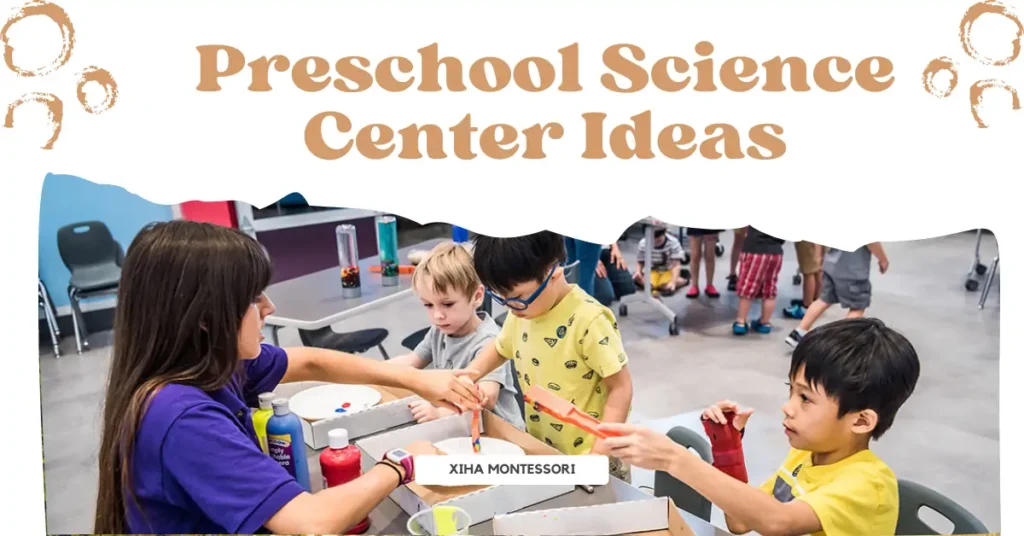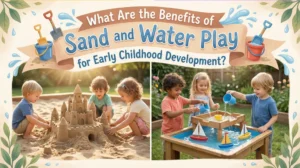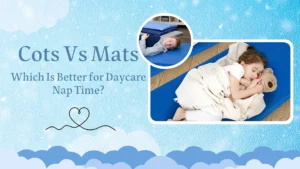Are you looking for fun and interactive science center ideas for your preschool classroom? Science centers are a great way to introduce young children to the wonders of the natural world. By providing hands-on experiences and interactive experiments, children can develop critical thinking skills and curiosity about the world around them.
Preschool science center ideas are not only educational but also entertaining. Students are allowed to explore science independently without adult guidance. These activities encourage children’s exploration, critical thinking, and problem-solving skills. Children independently manipulate and investigate science activities, asking and answering questions through the science center.
From sensory explorations to simple experiments, various educational and entertaining activities are planned to build a vibrant science center and create a rich and immersive learning environment for young learners.
Why The Classroom Needs a Science Center
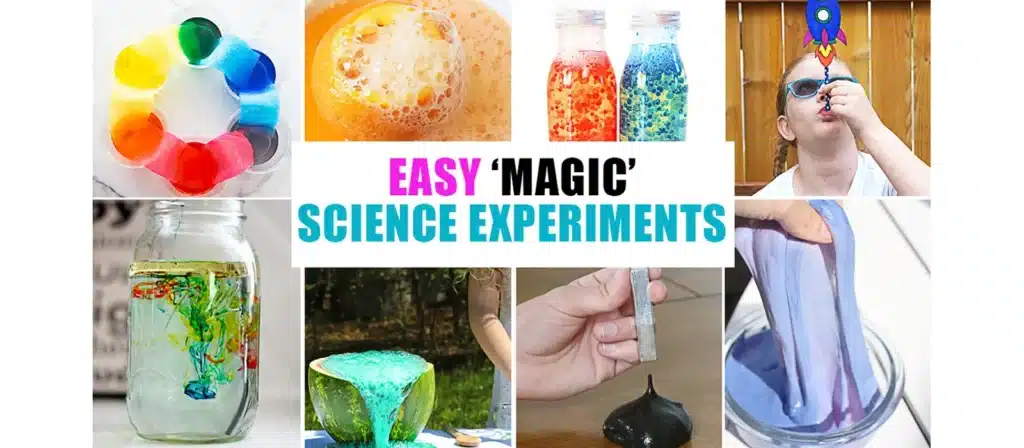
A science center in the classroom is a valuable resource for fostering curiosity, critical thinking, and hands-on learning. It encourages exploratory learning by providing hands-on activities and experiments that lead to a deeper understanding of scientific concepts. Participation in these activities enhances students’ problem-solving and analytical skills in hypothesizing, experimenting, observing, and drawing evidence-based conclusions.
The Science Center also supports interdisciplinary learning by integrating the disciplines of mathematics, technology, engineering, and the arts to promote collaboration and communication.
Science centers cater to various learning styles and levels, allowing self-paced learning. They spark interest in STEM fields. The Science Center ensures students meet educational benchmarks by aligning with curriculum standards.
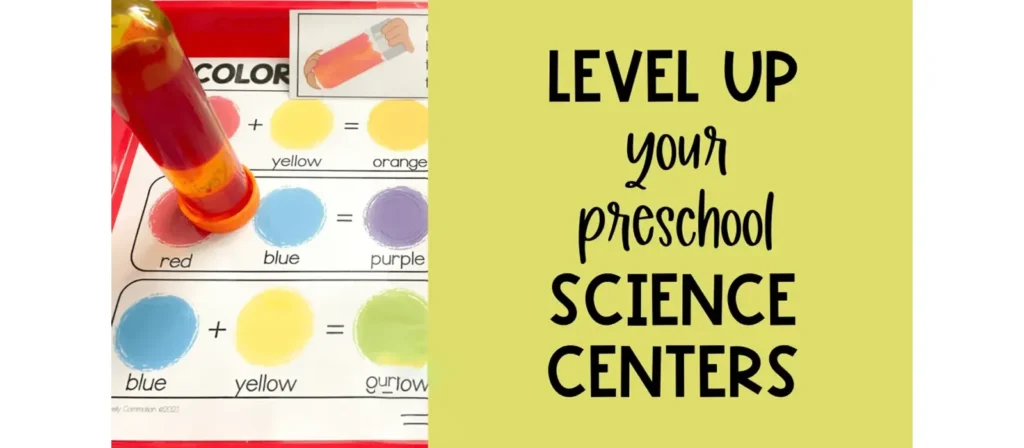
Key Features of a Preschool Science Center Ideas
A successful science center for preschoolers should incorporate several key features to maximize its educational impact.
- Interactive Activities
- Hands-on Activities
- Scientific Tools
- Books and Visual Aids
- Guided Exploration
- Open-ended
- Rotating Themes
- Fun and Playful
How to Spark Interest?
Guided discovery helps children understand complex concepts. Provide gentle guidance and ask open-ended questions to stimulate their thinking. For example, ask, “What do you think will happen if we mix these two liquids?”
Group activities promote collaboration and communication. Experiments requiring teamwork, such as creating a volcano eruption with baking soda and vinegar, can be particularly engaging. Rotate materials and themes regularly to prevent boredom and maintain continuous engagement.
Family involvement is also key. Organize family science nights where parents can explore the science center with their children. Create take-home science kits for families to do simple experiments together. Community involvement can enrich the science center and provide unique learning opportunities. Invite community members to share their expertise or donate materials.
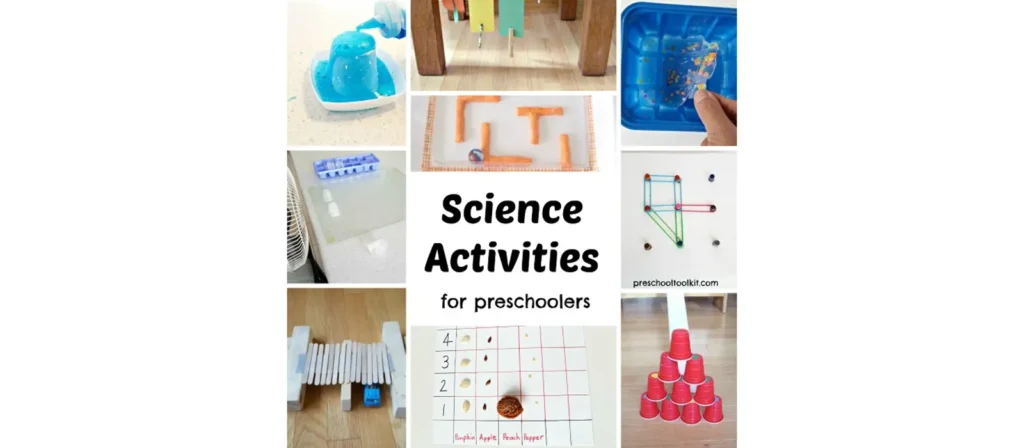
What Science Activities Can Preschoolers Do?
Preschool science activities offer many benefits that foster a love of learning and curiosity about the world. These activities engage children in hands-on exploration, which enhances their understanding of basic science concepts and the natural world. Critical thinking and problem-solving skills are developed. These activities encourage observation and inquiry, prompting children to ask questions and seek answers, which is the foundation of science learning.
Activities like nature walks, simple experiments, gardening, and weather observation allow children to connect with the world around them. For instance, collecting leaves and rocks, observing insects, and planting seeds help children learn about biology and ecology. Simple experiments like mixing baking soda and vinegar or testing objects to see if they sink or float introduce basic principles of chemistry and physics.
Preschool Science Curriculum
Developing a comprehensive science curriculum for preschoolers includes aligning activities with educational standards and incorporating diverse learning experiences.
Ensure preschool science center ideas align with early childhood education standards and guidelines. Incorporate other subjects such as math, literacy, and art. For example, measuring plant growth, recording data, or drawing and labeling insect parts.
Use thematic units to cover a variety of science topics. Rotate these units throughout the year to keep the curriculum diverse. Regularly assess children’s understanding through observation and file retention. Reflect on the effectiveness of activities and make adjustments as needed.
Professional development for teachers is also important. Keep abreast of new science education practices and resources. Attend workshops, read current research, and collaborate with colleagues to bring new ideas to Science Center Ideas.
Everyday Materials to Include In a Preschool Science Center
Everyday materials can be versatile and educational. They provide familiar objects that children can explore in new ways.
1. Magnifying Glasses and Mirrors
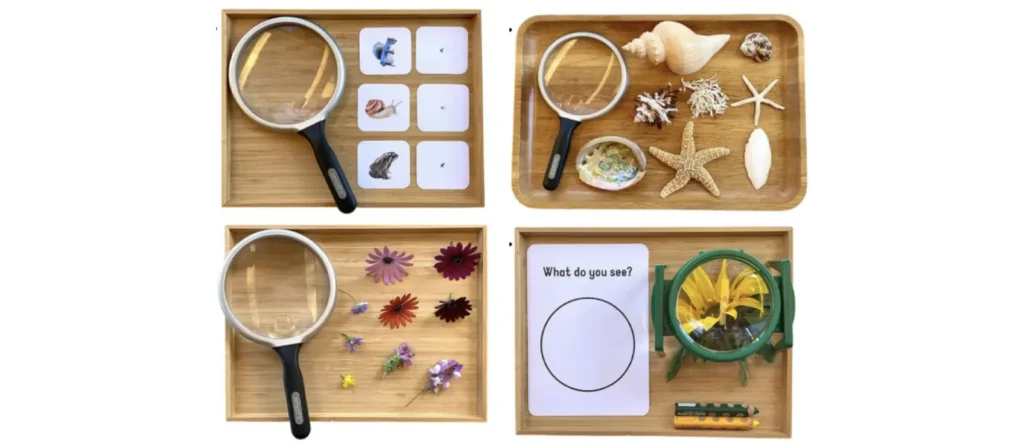
Magnifying glasses allow children to observe objects up close, fostering detailed observation skills. Mirrors can be used to explore reflections, symmetry, and light.
2. Measuring Tools

Include rulers, measuring tapes, and scales. These tools help children understand measurement concepts and develop fine motor skills. Use them in activities like measuring plants or weighing objects.
3. Simple Science Kits
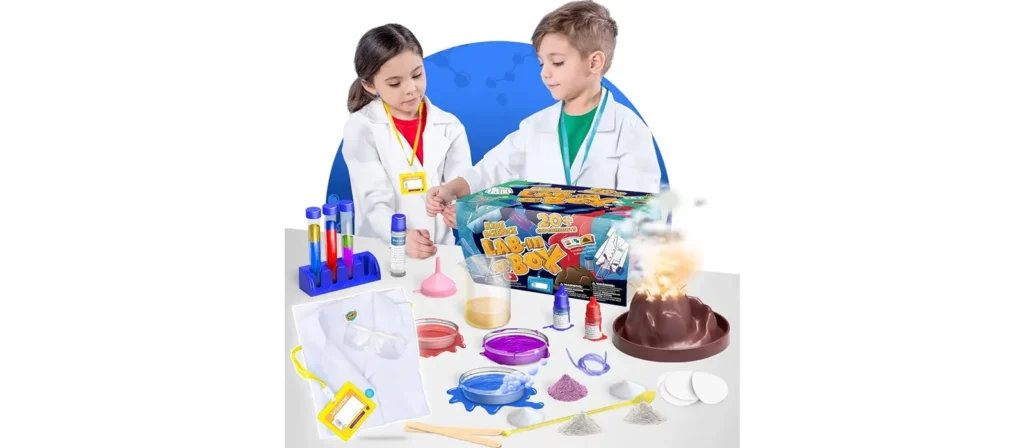
Science kits designed for young children offer a range of activities. Kits can include materials for basic experiments, such as mixing colors, growing crystals, or making simple circuits.
4. Sensory Bins
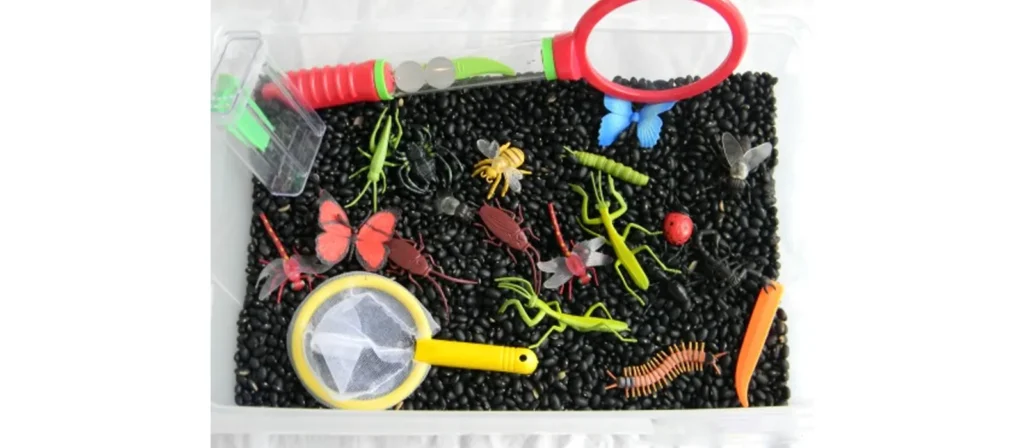
Sensory bins with materials like rice, sand, water, or beans. Sensory bins provide tactile experiences that promote exploration and sensory development. Add themed objects like seashells or plastic insects to align with your topic.
5. Everyday Objects
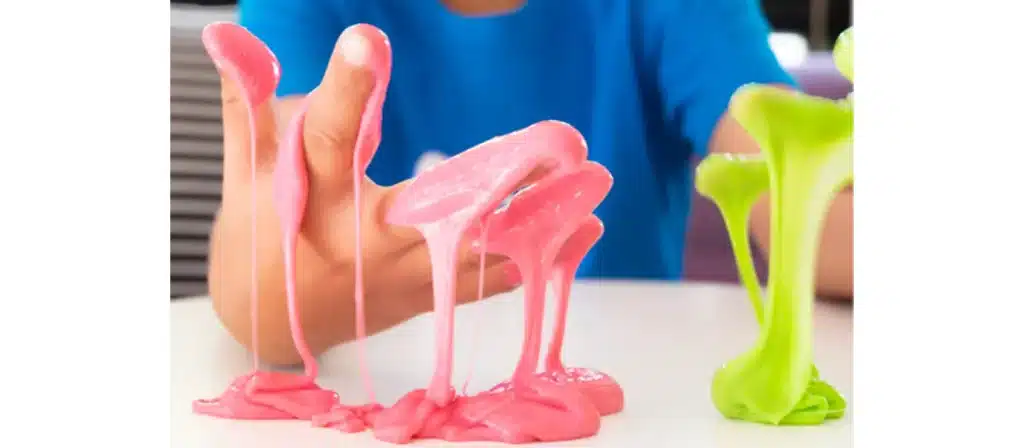
Incorporate items like plastic bottles, cardboard tubes, and kitchen utensils. These can be used in various science activities, such as building structures, creating sound experiments, or exploring water flow.
6. Eye Droppers or Plastic Pipettes
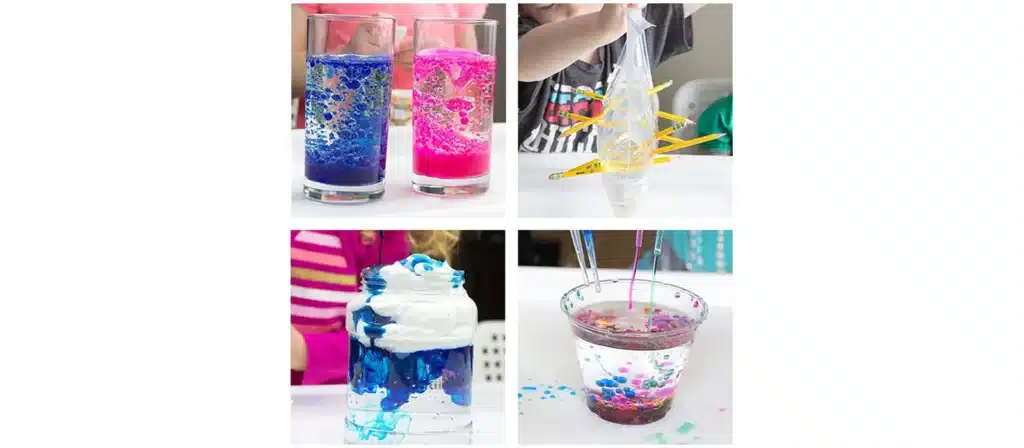
Droppers and plastic pipettes are great for exploring fluid measurement and transfer. Kids can use them in activities like mixing colored water or transferring water between containers.
7. Thermometer
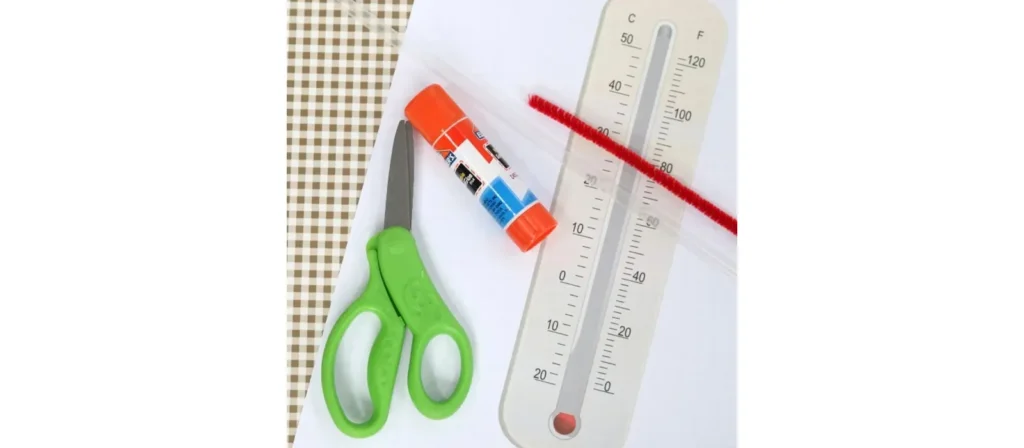
A thermometer is a simple yet powerful tool for teaching about temperature. Use it to measure the temperature of water, air, or other substances. This helps children understand how temperature affects different materials and introduces basic principles of thermodynamics.
8. Magnets
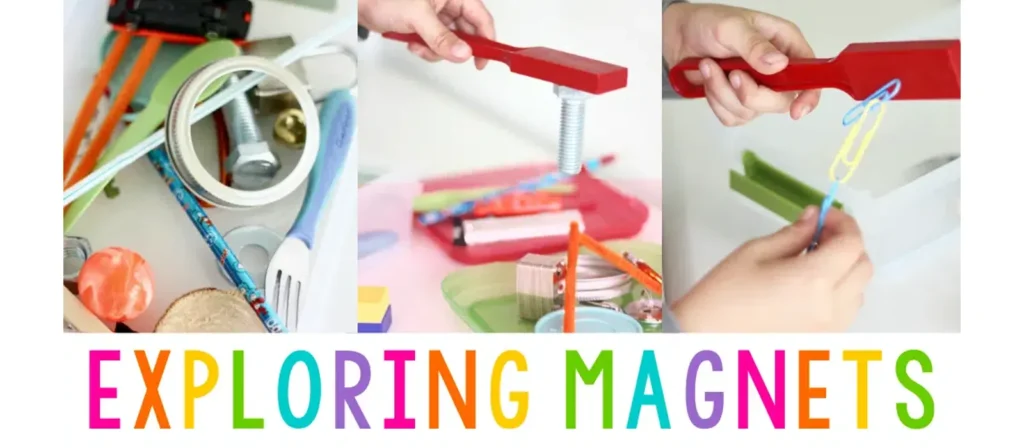
Provide various magnets and magnetic objects to explore magnetic attraction and repulsion. Activities can include sorting magnetic and non-magnetic items, using magnets to move objects, and creating simple magnetic sculptures.
Natural Materials for Preschool Science Center
Natural materials connect children with the environment and introduce them to the wonders of the natural world.
- Rocks and Minerals
- Leaves
- Flowers
- Seeds
- Soil
- Feathers
- Shells
- Pinecones
- Acorns
- Water
Organisms for Preschool Science Center
Introducing live organisms can make the science center even more engaging. However, choosing safe and manageable organisms for young children is important.
- Insects and Bugs
- Plants and Herbs
- Fish and Aquariums
- Worm Farms
- Small mammals
- Reptiles
STEM Materials for Preschool Science Center
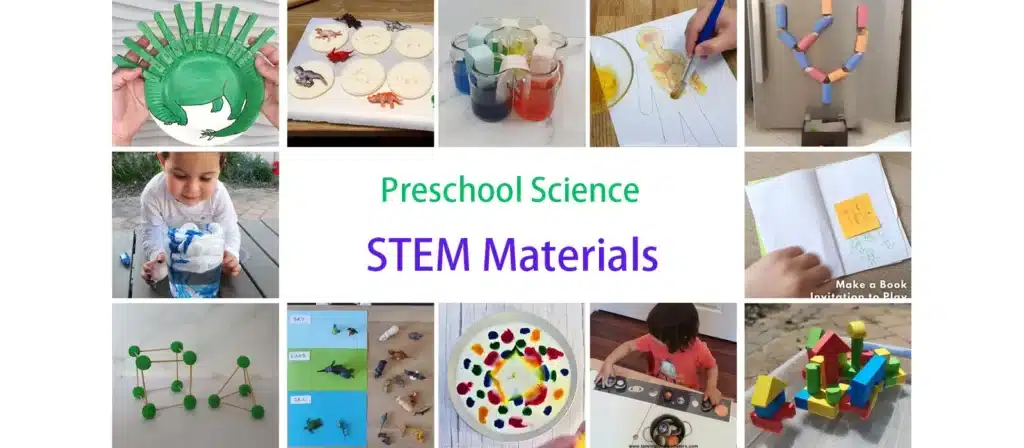
STEM (Science, Technology, Engineering, and Mathematics) materials are crucial for developing children’s critical thinking and problem-solving skills.
Building Blocks and Construction Sets
Blocks and construction sets allow children to explore engineering concepts. Encourage them to build structures, experiment with balance, and understand the basics of architecture.
- Building Blocks and Construction Sets
Introduce basic physics concepts with simple machines like pulleys, levers, and wheels. Let children experiment with these tools to learn about force, motion, and mechanics. - Simple Machines
Introduce basic physics concepts with simple machines like pulleys, levers, and wheels. Let children experiment with these tools to learn about force, motion, and mechanics. - Robotics Kits
Age-appropriate robotics kits can introduce children to programming and robotics. Kits like Bee-Bots are designed for young children and provide a hands-on way to learn coding basics. - Math Manipulatives
Include items like counting bears, pattern blocks, and number lines. These manipulatives help children develop math skills such as counting, sorting, and understanding patterns. - Science Experiment Kits
Experiment kits can cover a range of topics, from chemistry to physics. Choose kits with simple, safe experiments children can conduct with minimal supervision.
Books for Preschool Science Center
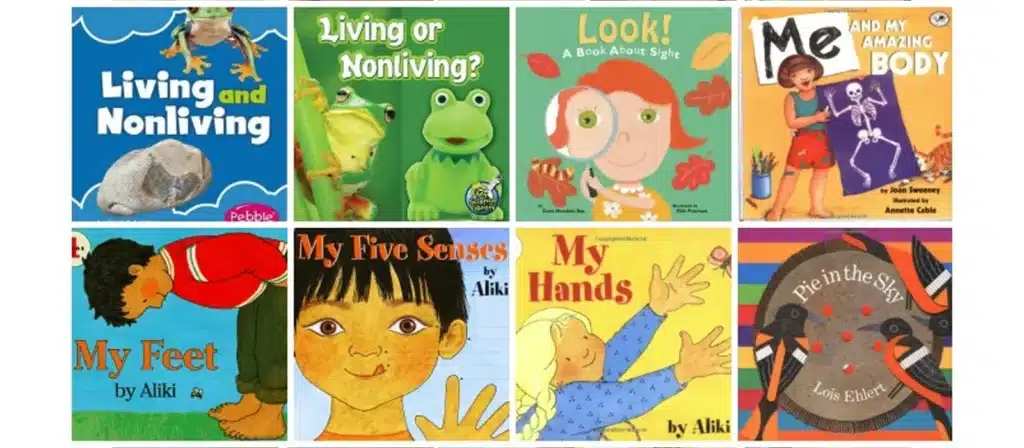
Always remember to place some books for your preschool science center. Books are an invaluable resource in a science center. They provide information, inspire curiosity, and support literacy development.
Include science concept books that explain weather, the human body, and physics with clear illustrations and simple text. Add nature books about animals and ecosystems, experiment and activity books with step-by-step instructions, storybooks with scientific themes, and biographies of famous scientists like Marie Curie and Albert Einstein.
Seasonal Science Center Ideas
Preschool science center ideas should include seasonal materials that match children’s interests and developmental stages. This keeps young learners engaged and motivated to explore and learn throughout the year.
Spring Preschool Science Center Ideas
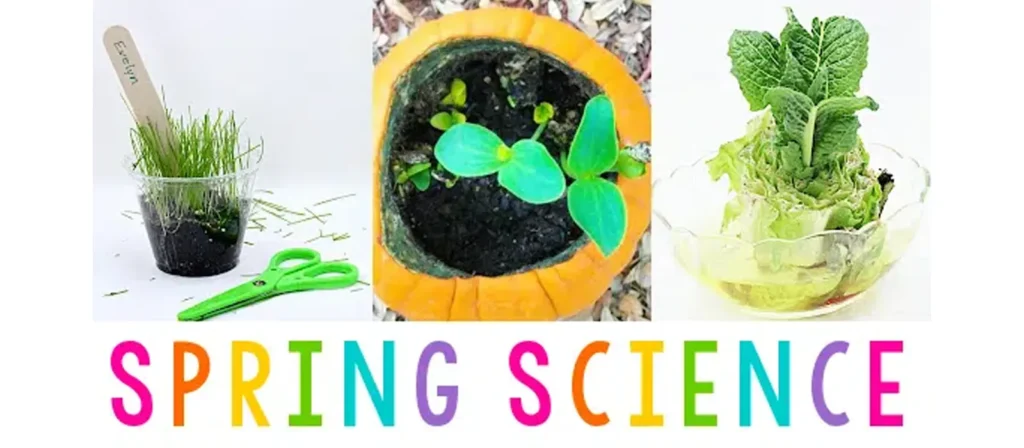
Spring is a time of renewal and growth, making it perfect for introducing young learners to the wonders of the natural world. Incorporate materials that highlight these changes and encourage hands-on exploration.
- Planting and Gardening
- Butterfly kits
- Weather Observation
- Pinwheels
- Flowers and blossoms
Summer Preschool Science Center Ideas
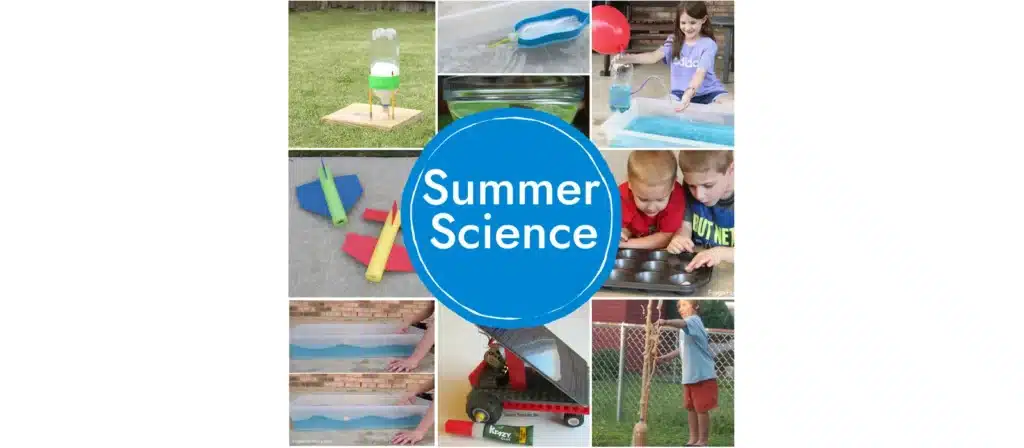
Summer is ideal for exploring outdoor environments and conducting experiments that involve water and light. Focus on materials that capture the essence of summer and encourage outdoor exploration.
- Water Play
- Sunlight and Shadows
- Bug-catching kits
- Sand and Seashells
- Bubbles
Fall Preschool Science Center Material Ideas
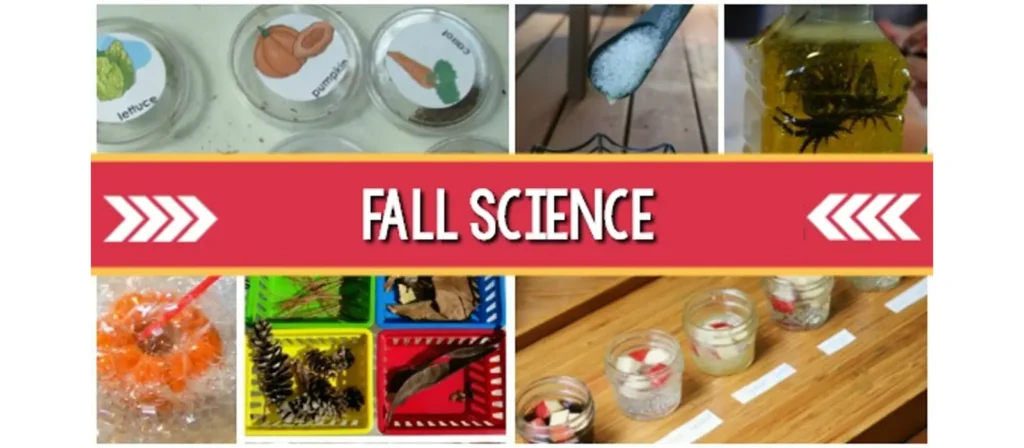
Fall is a season of change, with leaves turning colors and animals preparing for winter. Use materials that highlight these transformations and introduce concepts related to seasons and animal behavior.
- Leaf Exploration
- Pumpkins, gourds, and corn
- Animal Behavior
- Weather Changes
Winter Preschool Science Center Material Ideas
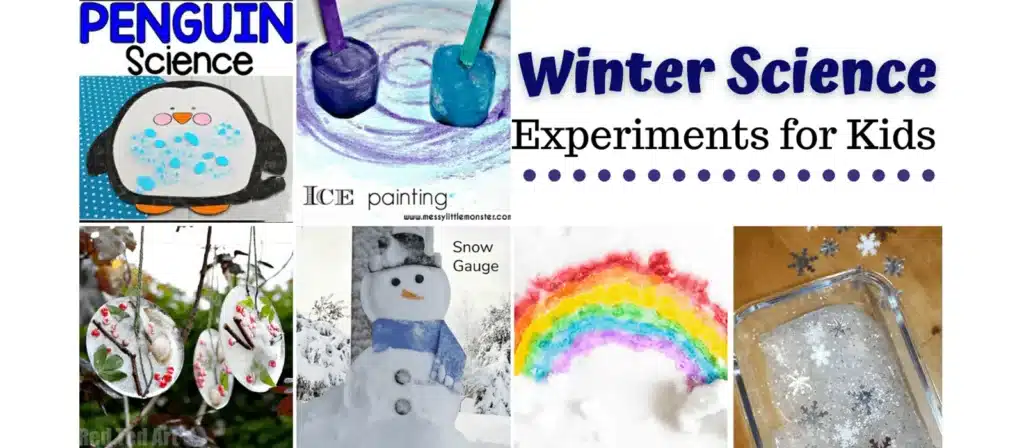
Winter brings unique opportunities to explore temperature, ice, and animal adaptations. Use materials that capture the essence of winter and encourage scientific exploration.
- Snow
- Ice
- Temperature Experiments
- Icicles
- snowflakes
Preschool Science Center Kits
Science kits are popular in preschool science centers, offering structured activities that introduce children to scientific concepts. These kits, including nature exploration, weather observation, life cycles, planting, and simple machines, provide hands-on learning, fostering curiosity and understanding. At Xiha Montessori, we offer a range of science kits to enhance your preschool curriculum. For more information, contact us at Xiha Montessori.

